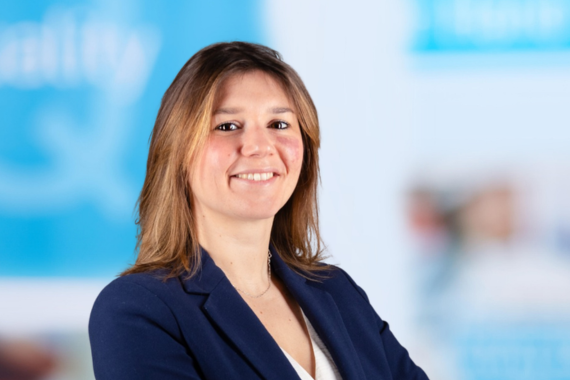“A lived culture of innovation is our motivation“
Faster, more precise, safer – the jury of the WESSLING Innovation Award 2018 was impressed by a new detection method for legionella that takes just a few hours. The international analysis and consulting service provider awarded a total of 10,000 euro to the best four innovations at this year's award ceremony in the LWL Museum for Art and Culture. To mark its 35th anniversary, the prize was awarded at the laboratory site in Münster, one of a total of 24 locations in seven European countries and China. The fact that there is the right climate for innovations in the company becomes apparent in the annual ideas from the staff with its over 1,300 employees.
WESSLING attaches great importance to innovative spirit

“Most recently, they said German companies ran out of ideas. We do not see this trend at WESSLING ", says Florian Weßling, managing shareholder. The company attaches great importance to an innovative spirit – and”, states Weßling, “good ideas don't always depend on the budget. Often it is the small improvements that give our customers and our services decisive advantages.“
“The company promotes this innovation climate through flat hierarchies, direct communication channels and close interdisciplinary cooperation. This lived innovation culture is our motivation and important to stay fit for the future," says Florian Weßling. Much of what was a vision yesterday is already part of our everyday life today, but may be outdated tomorrow. The winners convinced the jury with their innovations in the areas of food safety, environment and digitalisation:
Focus on food safety
Marian Górowiec from Poznan has developed an important tool for food testing: with its new calculator, the Acute Reference Dose (ARfD), i.e. the maximum permissible level of pesticide residues in feed, can now be calculated in around 30 minutes and thus three times as fast. Customers from the food industry have this value checked regularly in the WESSLING laboratories in order to comply with the strict controls for consumer protection.
Faster, more precise, safer: The new legionella detection method

Thanks to the innovation of Dagmar Braeker, Marius Kerkhoff and Dr Judith Scharte from Münster, the company is "first on the market" with a new legionella detection method. It helps, above all, customers who remediated due to legionella infestation, e.g. in recooling plants, or who used biocides to combat bacteria. The new detection method provides them with information within a few hours of receiving samples in the laboratory as to whether the measures have taken effect – until now, this has taken several days.
Avoid plastic waste: how to increase awareness already in kindergarten
Adrienn Tolokán from Hungary receives the WESSLING Innovation Award 2018 for her anti-plastic campaign in kindergartens and primary schools. With a painting competition, waste collection campaigns on rivers and short films, she initiated an intensive dialogue – also with parents and teachers – on environmental protection and sustainability. A commitment that already won the CSR Hungary Award in Hungary.
Micro plastic is currently one of the major topics of the WESSLING experts. They contribute their know-how to various European research projects.
New IoT-measuring instrument: digital interface for laboratory and customer
The Hungarian Krisztián Somogyi developed a digital interface between customer and laboratory in the sense of the "Internet of things". The complete online monitoring by the measuring device means a significant plus in quality assurance.
Your contact
We will be happy to support you.
- Sagessa Raesch
- +33 622 429 582
- sagessa.raesch@wessling.fr
